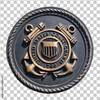Protecting marine ecosystems from potentially harmful invasive aquatic species transported in ships’ ballast water is an important part of International Maritime Organization (IMO)'s work to protect the marine environment.
The treaty supporting this is the Ballast Water Management (BWM) Convention, which requires ships in international traffic to manage their ballast water and sediments to a certain standard, according to a ship-specific ballast water management plan.
But for regulation to be effective, it needs to be clearly understood by all stakeholders involved. To support this process, IMO’s Theofanis Karayannis has updated ballast water professionals, shipowners and other stakeholders meeting at the BWMTech London Conference (12 December) on recent regulatory developments.
Specifically, he outlined the key decisions from the latest session of IMO’s Marine Environment Protection Committee (MEPC 71) related to implementing the BWM Convention, which entered into force in September 2017.
Amendments agreed by MEPC 71 are expected to be adopted at the next session (MEPC 72) in April 2018 and will set out an implementation schedule for the so-called D-2 standard. This standard specifies that ships can only discharge ballast water that meets specific criteria.
In addition to a general presentation – Karayannis took part in two panel discussions to further explain the detail of the latest developments and various important regulatory issues.













